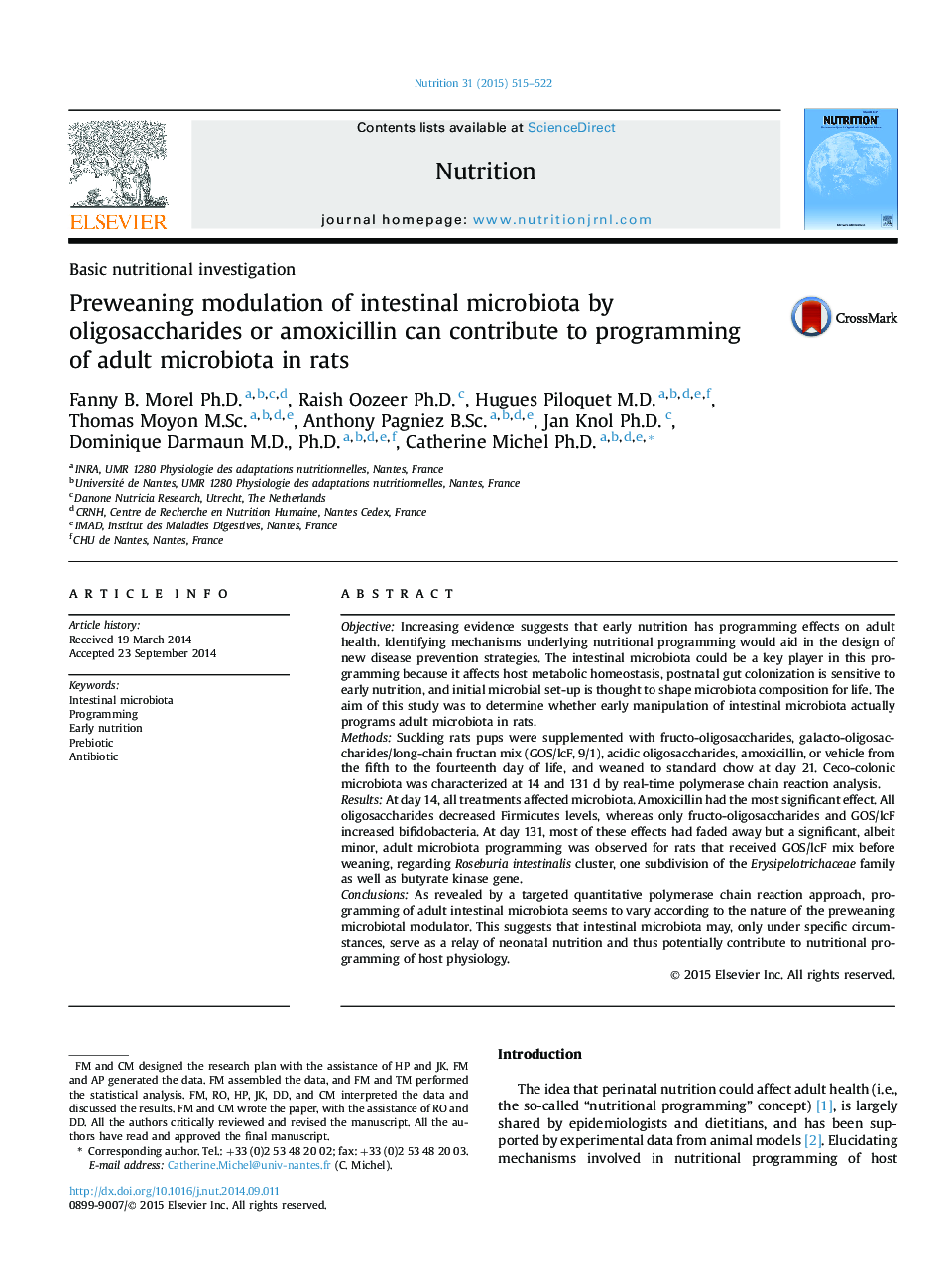| کد مقاله | کد نشریه | سال انتشار | مقاله انگلیسی | نسخه تمام متن |
|---|---|---|---|---|
| 6089455 | 1208545 | 2015 | 8 صفحه PDF | دانلود رایگان |
- The long-term effects of microbiotal modulation in early life on adult microbiota are unknown.
- Acidic oligosaccharides, galacto-oligosaccharides/long-chain fructan, fructo-oligosaccharides, and amoxicillin can all affect early intestinal microbiota in rats.
- Most of these early effects appear to have faded away by the time rats reach adulthood.
- Slight programming of adult intestinal microbiota is, however, observed with galacto-oligosaccharides/long-chain fructan.
- In some cases, intestinal microbiota may act as a relay in nutritional programming.
ObjectiveIncreasing evidence suggests that early nutrition has programming effects on adult health. Identifying mechanisms underlying nutritional programming would aid in the design of new disease prevention strategies. The intestinal microbiota could be a key player in this programming because it affects host metabolic homeostasis, postnatal gut colonization is sensitive to early nutrition, and initial microbial set-up is thought to shape microbiota composition for life. The aim of this study was to determine whether early manipulation of intestinal microbiota actually programs adult microbiota in rats.MethodsSuckling rats pups were supplemented with fructo-oligosaccharides, galacto-oligosaccharides/long-chain fructan mix (GOS/lcF, 9/1), acidic oligosaccharides, amoxicillin, or vehicle from the fifth to the fourteenth day of life, and weaned to standard chow at day 21. Ceco-colonic microbiota was characterized at 14 and 131 d by real-time polymerase chain reaction analysis.ResultsAt day 14, all treatments affected microbiota. Amoxicillin had the most significant effect. All oligosaccharides decreased Firmicutes levels, whereas only fructo-oligosaccharides and GOS/lcF increased bifidobacteria. At day 131, most of these effects had faded away but a significant, albeit minor, adult microbiota programming was observed for rats that received GOS/lcF mix before weaning, regarding Roseburia intestinalis cluster, one subdivision of the Erysipelotrichaceae family as well as butyrate kinase gene.ConclusionsAs revealed by a targeted quantitative polymerase chain reaction approach, programming of adult intestinal microbiota seems to vary according to the nature of the preweaning microbiotal modulator. This suggests that intestinal microbiota may, only under specific circumstances, serve as a relay of neonatal nutrition and thus potentially contribute to nutritional programming of host physiology.
Journal: Nutrition - Volume 31, Issue 3, March 2015, Pages 515-522
